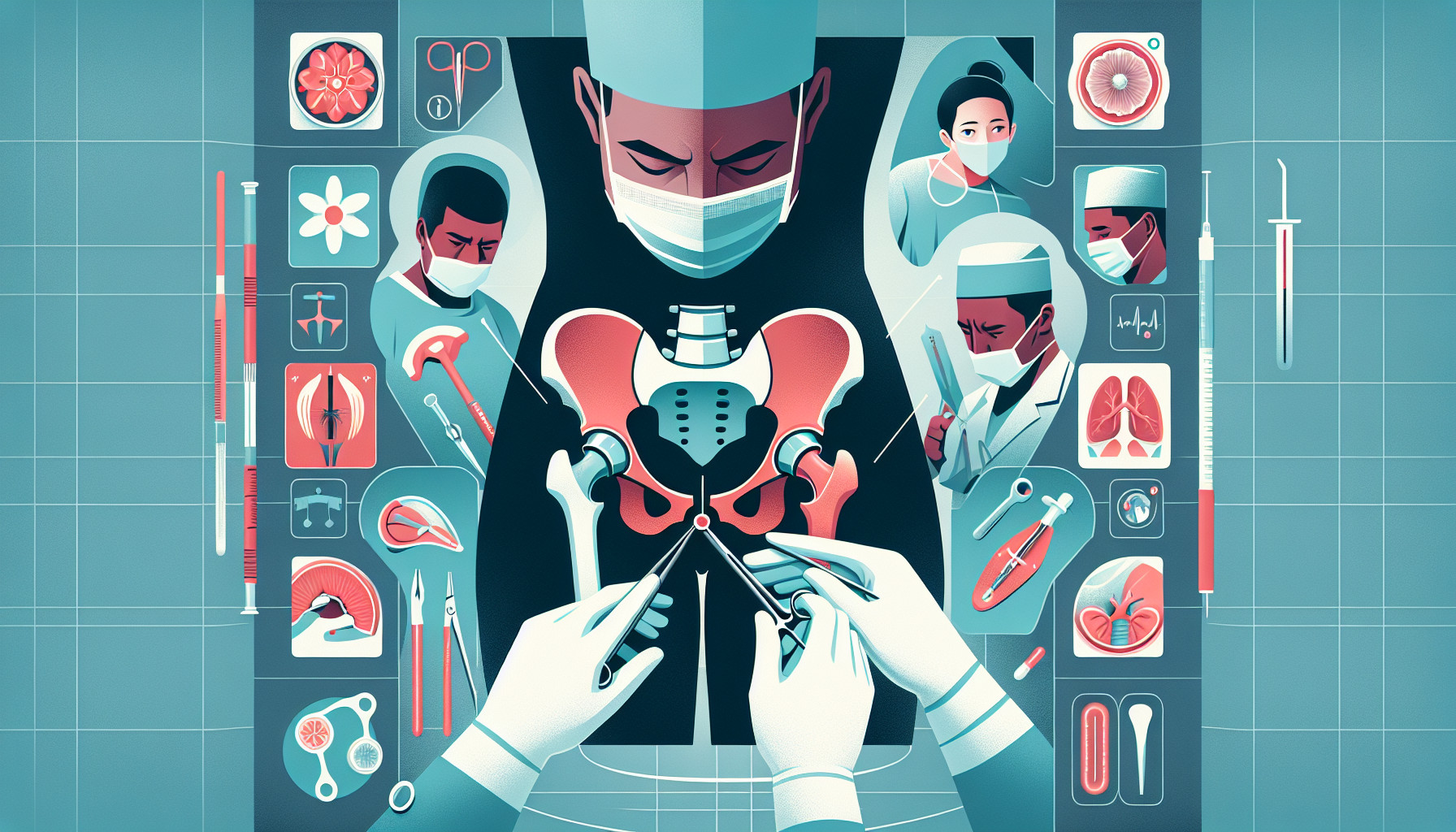Our Summary
This research paper examines why total hip replacement surgeries may fail in patients under the age of 50. The study looked at over 1,000 hip surgeries over a five-year period, focusing on 146 patients under 50. They classified the failures as either happening early (within the first five years after the initial surgery) or late (more than five years after the initial surgery).
The most common reason for the hip replacement to fail was “aseptic loosening” where the artificial hip joint becomes loose, accounting for 42.3% of cases. This was followed by failures due to issues with metal-on-metal implants (15.8%), infections (14.4%), and instability of the joint (9.6%).
In the cases of early failure, the most common reason was issues with metal-on-metal implants (27.8%) followed by aseptic loosening (19.7%) and infections (18.4%). For late failures, the main cause was aseptic loosening (64%) and infections (10.7%).
The authors conclude that the increase in early failures due to metal-on-metal implant issues is a crucial trend to be aware of. They highlight the need for ongoing review of why hip replacements fail to ensure the best possible outcomes for patients and to prolong the lifespan of the implants.
FAQs
- What is the most common cause of failure in primary total hip replacement in patients under 50 years old?
- What is the most common cause for early revision surgery after a primary total hip replacement?
- Why is continuous review of the mechanism of primary total hip replacement failure necessary?
Doctor’s Tip
A helpful tip a doctor might tell a patient about hip replacement is to be aware of the potential modes of failure, such as aseptic loosening, metal-on-metal failure, infection, and instability. It is important for patients to follow post-operative instructions carefully, attend follow-up appointments, and report any unusual symptoms to their healthcare provider promptly. Additionally, maintaining a healthy lifestyle, including regular exercise and a balanced diet, can help optimize the longevity of the hip replacement.
Suitable For
Patients under 50 years old who may be recommended for hip replacement surgery include those with severe hip pain, stiffness, and limited mobility due to conditions such as osteoarthritis, rheumatoid arthritis, avascular necrosis, hip dysplasia, or a hip fracture. These patients may have exhausted conservative treatment options and have significant impairments in daily activities and quality of life. Additionally, patients with a history of failed hip surgeries, such as hip resurfacing or previous hip replacements, may also be candidates for revision total hip replacement.
Timeline
- Pre-surgery: Patient experiences hip pain, stiffness, and limited mobility, leading to consultation with a healthcare provider.
- Before surgery: Patient undergoes a thorough evaluation, including physical examination, imaging studies, and possibly conservative treatments such as medication or physical therapy.
- Surgery: Patient undergoes total hip replacement surgery, where the damaged hip joint is replaced with an artificial implant.
- Post-surgery: Patient undergoes a period of rehabilitation, including physical therapy to regain strength and mobility in the hip joint.
- Long-term follow-up: Patient is monitored for any signs of complications or implant failure, with a need for revision surgery if necessary.
What to Ask Your Doctor
- What are the common reasons for hip replacement failure in patients under 50 years old?
- How can I reduce the risk of aseptic loosening or metal-on-metal failure in my hip replacement?
- What symptoms should I watch for that may indicate a potential issue with my hip replacement?
- What is the typical recovery process for revision total hip replacement surgery?
- Are there any specific lifestyle changes or precautions I should take after undergoing a hip replacement surgery?
- How often should I follow up with you after the surgery to monitor the success of the hip replacement?
- Are there any alternative treatments or surgical options available if my hip replacement fails again in the future?
- What is the expected lifespan of a revision total hip replacement compared to a primary hip replacement?
Reference
Authors: Burke NG, Gibbons JP, Cassar-Gheiti AJ, Walsh FM, Cashman JP. Journal: Ir J Med Sci. 2019 Aug;188(3):879-883. doi: 10.1007/s11845-018-01956-8. Epub 2018 Dec 19. PMID: 30569374
